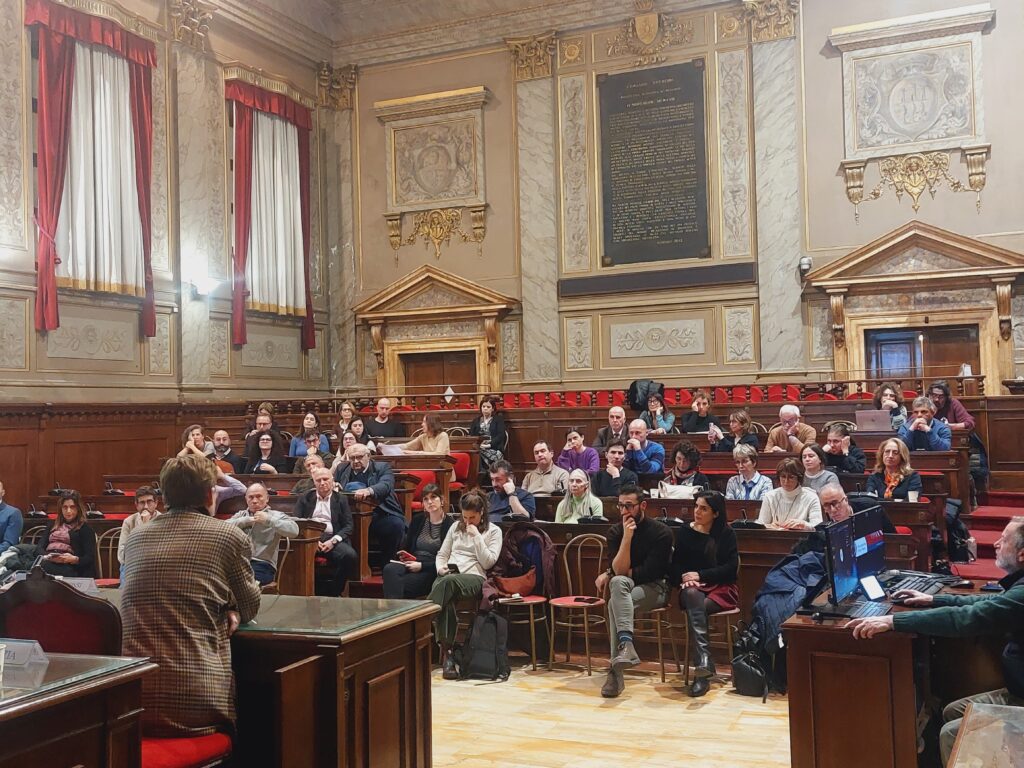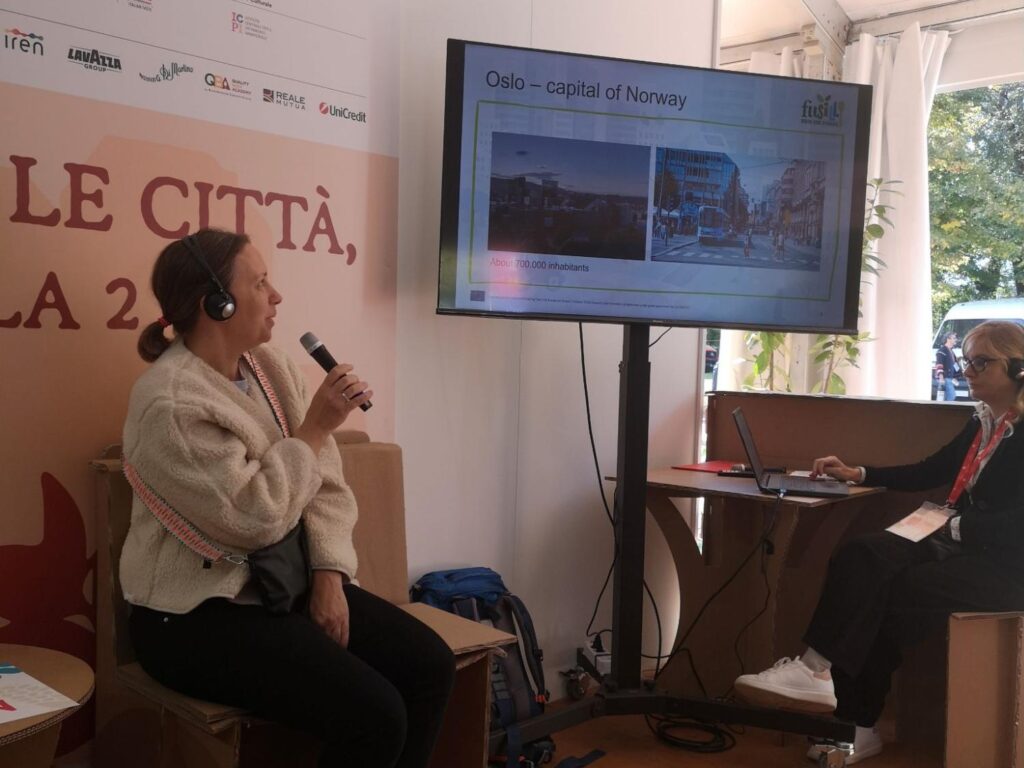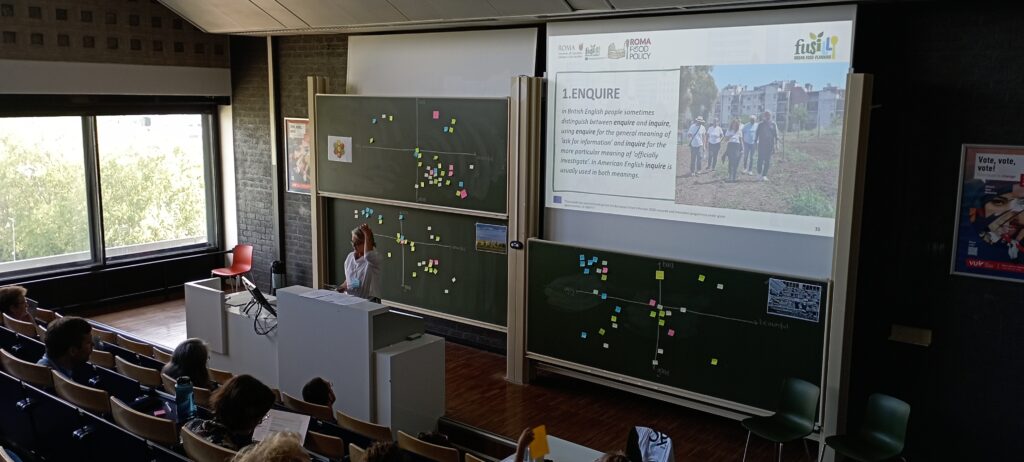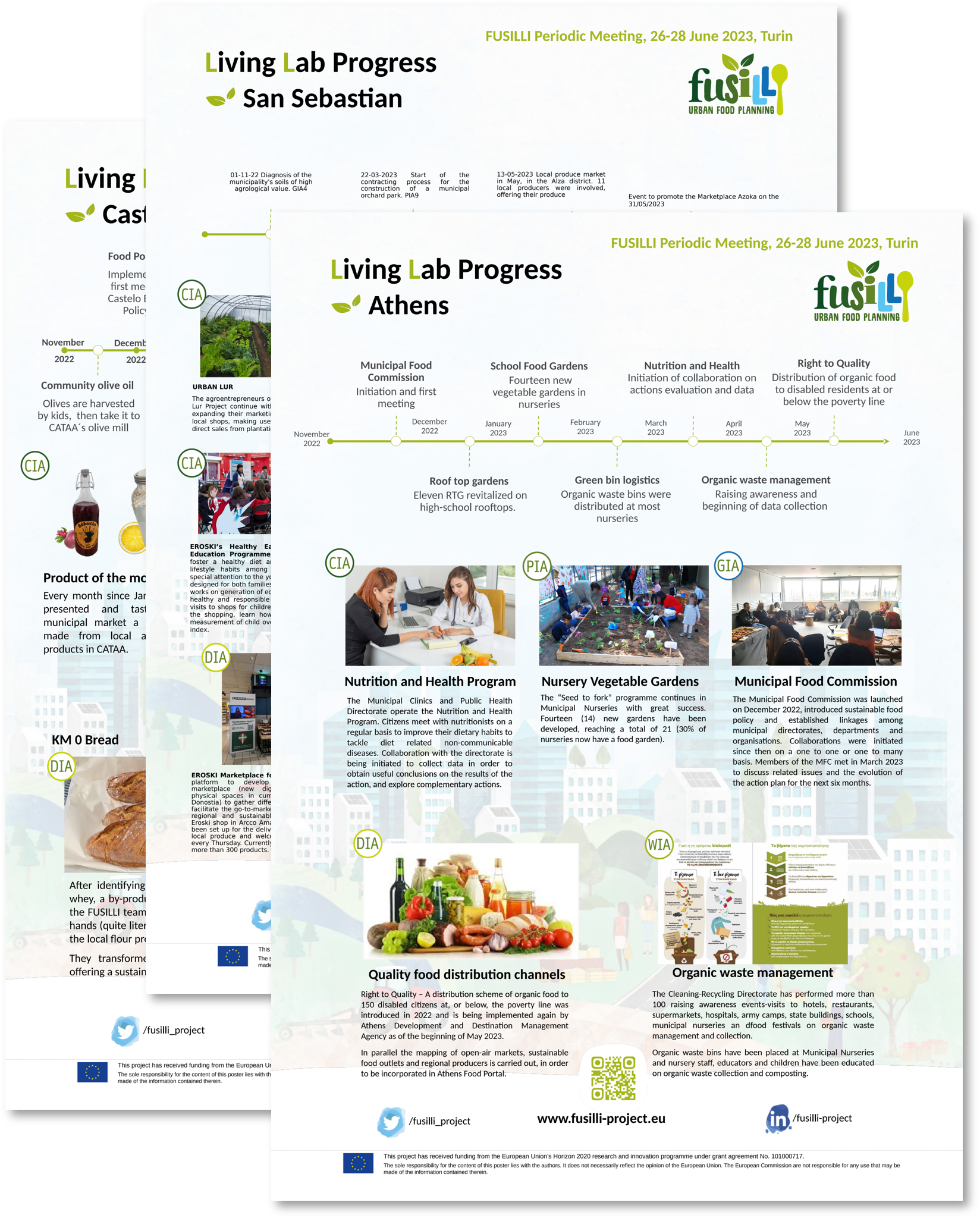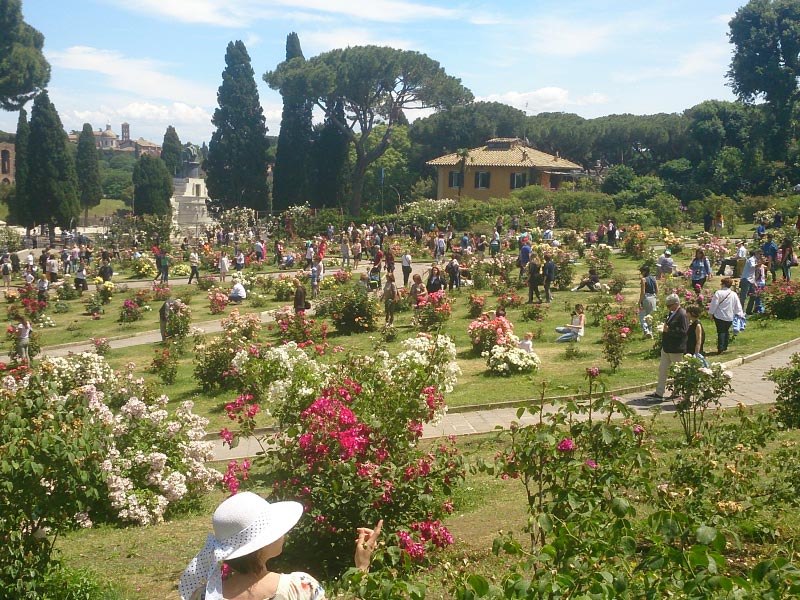Rome Living Lab Outcomes and Tools
The FUSILLI Rome Living Lab has developed various outcomes and tools over the 4 years of project life time between 2021-2024. These city specific Living Lab outcomes and tools can be found on this page
Rome's Roadmap
See their complete LL Roadmap
Rome's Evaluation of Innovative Actions
See the evaluation of their implemented actions defined in the action plan
Rome's Food Action Plan
Read their complete Urban Food Action Plan
Summary - Urban Food Action Plan - English
Read the LL's Urban Food Action Plan in English
Summary - Urban Food Action Plan - Italian
Read the LL's Urban Food Action Plan in the local language
Among dozens of initiatives of active citizenship, more than 3,200 plots of community gardens are listed and stand as a crucial aspect of the urban metabolism and social justice. A large number of quality food products are produced not only in the countryside but also in the suburban and in the so-called rural/urban areas, so the city, still and again, represents today – as it has been for 3 thousand years – a considerable basin for the production of food and agricultural services. In the last 20 years the number of food networks has increased significantly in terms of short supply chains, farmers’ markets, ethical purchasing groups, box scheme experiences: 33 farmers’ markets; 55 EPGs; 2,656 farms; 744 of which sell directly.
Main objectives and planned implementations
ROMA is one of the 12 partner cities in the Project. The FUSILLI Food 2030 Living Lab is led by the Development Project and European Funding Department of the City of Rome, technically supported by Risorse per Roma SpA.
Many innovative actions have been implemented under European programmes and since 2012, ROMA is using this experience to improve its own governance processes.
The political process for the approval of the new Resolution for the Implementation of the Food Policy of the City of Rome began on 4th March 2020, 5 days before the start of the first lock-down. The AGRICULTURAL AND FOOD STRATEGIC PLAN OF ROME is the result of a great synergistic work of the City Administration with citizens, associations and actors of the agri-food system and has been submitted for its approval by the City Assembly. The Plan follows 6 guidelines:
1. Agriculture and Roman countryside
2. The agricultural and food identity of Roman products
3. Roman markets and short supply chains
4. Innovation, sustainability and research for the system’s future
5. Logistics for Flow Management and Food Safety
6. Rome, capital of food: communication and territorial marketing
The FUSILLI FOOD 2030 Rome Living Lab will help to decline these guidelines into objectives, defined actions and tools; to clearly identify subjects and times and the actions to be implemented; to test the practical actions and effective tools to promote the local food system; to encourage a more equitable redistribution, promote qualitative and healthy eating styles, reducing food and CO2 waste, promoting short supply chains.
- To build a Food Policy for Metropolitan Rome: strengthening and supporting SME and NGOs of the primary Roman sector along all steps of the food system.
- To ensure healthy eating and access to quality food for all citizens, protecting natural resources and strengthening economic and social links with rural areas close to the metropolis.
- A food Policy to encourage generational turnover in agriculture, food education and local food networks.
ROMA’s planned implementations are:
- for Consumers: Education of children for production and consumption of healthy food; Virtual Food Community; Local Community Food Watch; Food Living Lab; Food Hub; Promote sustainable consumption to gather good practices to be used; Agri-art; Educational workshops for cooking with local products; Educational tool for active citizenship in many multifunctional urban gardens and farms in Rome.
- for Distribution: Optimisation of plastic packaging; Databased solution to shorten food system and to increase quality in food and nutrition system; Municipal procurement from cityregion farms; Fairtrade Municipal procurement; Zero km Agriculture to promote urban beekeeping; Expand the catalogue of local producers to increase networking; Vending Machines related activities.
- for Governance: Food Charter; Workshops and meetings to analyse the current food system with relevant actors to identify the problems and to offer solutions to these problems; Including policies related to Agriculture, Environment, Health-food and Education; Decision making AI.
- for Production: School food garden to encourage the exchange of rare or ancient seeds and the creation of a seedbed in coordination with the action of Biodiversity conservation; Roof-top gardening; Smart precision farming; Community kitchens: 4 cooking paths in urban gardens; Urban garden allotments and Community supported agriculture to have 1 conference on urban gardens; Support the on-going integration of refugees activities; Soil studies in view of a new Regulation of Urban gardens.
Contact
Tamara Lucarelli
Project Coordinator FUSILLI
Roma Capitale, Dipartimento Progetti di Sviluppo e Finanziamenti europei
+39 06 6710 78907
+39 334 818 4023
